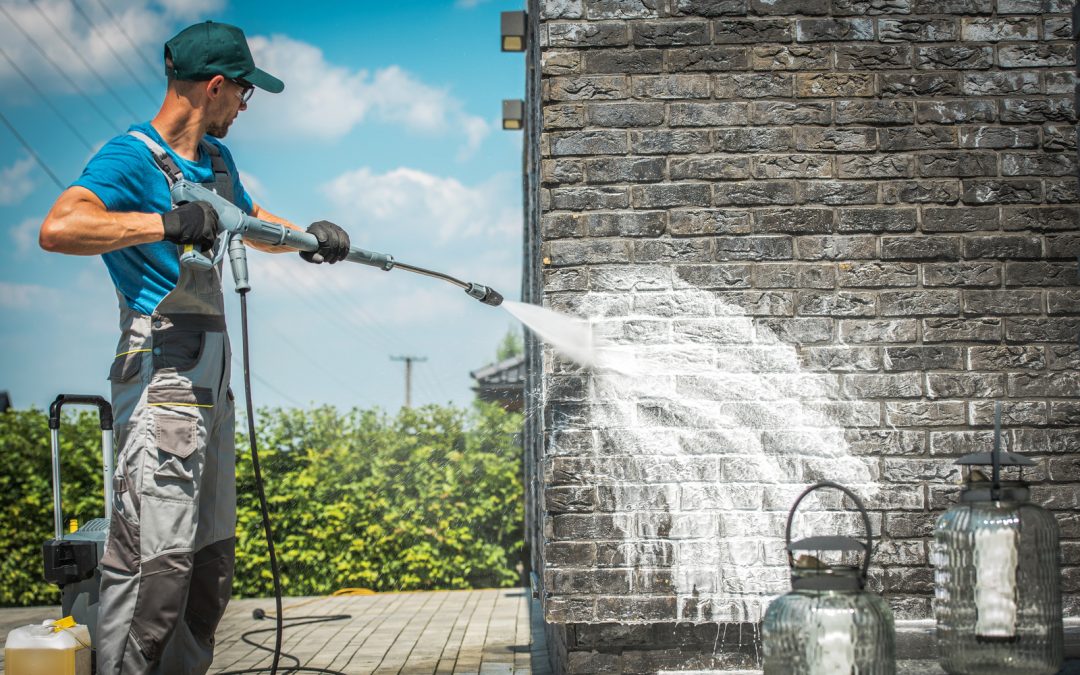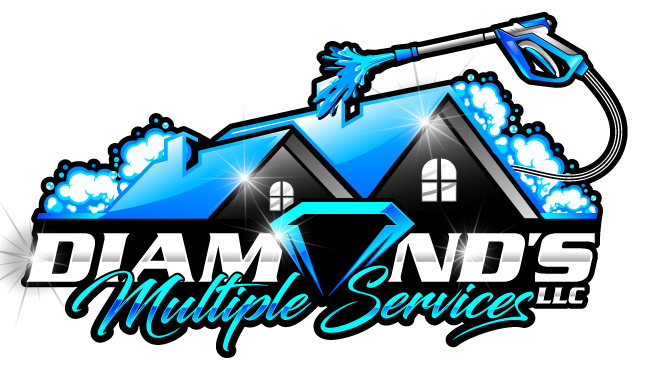
When it comes to maintaining the cleanliness and appearance of your home’s exterior, two popular methods often come into consideration: soft washing and pressure washing. Both are effective in cleaning various surfaces, but they serve different purposes and are suited for different types of surfaces and cleaning needs. Understanding the differences between the two can help you make an informed decision on which method is best for your home.
What is Pressure Washing?
Pressure washing, also known as power washing, involves using a high-pressure stream of water to remove dirt, grime, mold, mildew, and other contaminants from exterior surfaces. The water is forced through a nozzle at high velocity, which makes it highly effective for cleaning durable surfaces like concrete, brick, and metal. Pressure washing is often used for surfaces that can withstand the force of high-pressure water without becoming damaged.
Pros of Pressure Washing:
- Fast and Efficient: Pressure washing is highly effective at removing built-up dirt and stains in a short amount of time.
- Suitable for Tough Surfaces: It is great for cleaning hard surfaces like driveways, patios, sidewalks, and brick walls.
- Versatile: Pressure washing can be used to clean a wide variety of materials, including concrete, stone, and some types of wood.
Cons of Pressure Washing:
- Risk of Damage: High-pressure water can damage delicate surfaces, such as wood siding, painted surfaces, and window seals. If not used properly, pressure washing can cause etching, gouging, or even water intrusion into walls.
- Not Ideal for Sensitive Areas: Pressure washing is not recommended for roofs, painted surfaces, or areas with mold, as it may spread contaminants instead of removing them.
What is Soft Washing?
Soft washing, on the other hand, is a gentler cleaning method that uses low-pressure water combined with specialized cleaning solutions to clean surfaces. The cleaning solutions are designed to break down organic growth like mold, algae, and mildew, and the low-pressure water ensures that delicate surfaces aren’t damaged. Soft washing is typically used for more sensitive surfaces, such as roofs, siding, and decks.
Pros of Soft Washing:
- Gentler on Surfaces: Because it uses low-pressure water, soft washing is safe for more delicate surfaces, such as vinyl siding, roofs, and wood decks.
- Longer-Lasting Results: Soft washing solutions can kill mold and mildew at their root, preventing future growth for a longer period than pressure washing can.
- Effective on Organic Growth: Soft washing is ideal for cleaning roofs, siding, and other surfaces that have been affected by mold, mildew, or algae.
Cons of Soft Washing:
- Slower Process: Soft washing typically takes longer than pressure washing because of the additional time it takes for the cleaning solutions to break down contaminants.
- Not Ideal for Tough Dirt: While soft washing can remove organic growth and dirt, it may not be as effective at removing stubborn stains, especially those caused by grease or grime.
Soft Washing vs. Pressure Washing: Which is Best for Your Home’s Exterior?
To determine which method is best for your home, you need to consider the type of surface you’re cleaning, the level of dirt or contamination, and the potential risks involved.
1. Type of Surface
- Hard Surfaces (Concrete, Brick, Stone): If you’re cleaning surfaces like driveways, patios, or sidewalks, pressure washing is generally the better option. The high-pressure water will effectively blast away dirt and debris without causing damage to these sturdy surfaces.
- Delicate Surfaces (Vinyl Siding, Wood, Roofs): For more delicate surfaces, such as vinyl siding, wood decks, or roofs, soft washing is the preferred choice. The low-pressure water prevents damage to these materials, while the cleaning solutions help eliminate mold, algae, and mildew growth without compromising the integrity of the surfaces.
2. Level of Contamination
- Heavy Dirt and Grime: Pressure washing excels at cleaning tough, built-up dirt and grime. If your home’s exterior has years of accumulated dirt, grease stains, or moss, pressure washing can quickly and effectively remove these contaminants.
- Mold, Mildew, and Algae: If your home is dealing with mold, mildew, or algae growth, soft washing is the superior option. The cleaning solutions used in soft washing are designed to kill these organic growths at the root, preventing them from returning anytime soon. Pressure washing, on the other hand, can sometimes push mold spores deeper into the surface, leading to a recurrence of the growth.
3. Risk of Damage
- Hardy Surfaces: If your home has tough, durable surfaces like concrete, pressure washing is safe and effective. You won’t have to worry about damaging the surfaces, as long as you use the correct pressure settings.
- Delicate Surfaces: For sensitive areas, such as a roof, painted wood, or vinyl siding, soft washing is the safest bet. Pressure washing can damage these surfaces by peeling paint, denting the material, or causing leaks in the roof. Soft washing is gentle enough to clean without causing harm.
4. Long-Term Results
- Longevity: Soft washing provides longer-lasting results, especially when it comes to preventing mold and mildew. The cleaning solutions used in soft washing can keep surfaces cleaner for longer by eliminating the root cause of organic growth. Pressure washing, while effective at the moment, may require more frequent cleanings to keep contaminants from returning.
5. Cost and Time Considerations
- Cost: Pressure washing tends to be more affordable in terms of both the initial cost and the time required for the cleaning process. Soft washing can be more expensive due to the need for specialized cleaning solutions and the extra time needed to apply them.
- Time: Pressure washing is quicker, making it ideal for large surfaces with stubborn dirt that can be removed quickly. Soft washing, due to the application of cleaning solutions, tends to take more time but is better for cleaning mold or algae growth over time.
Conclusion
Both soft washing and pressure washing have their distinct advantages, and the right method for your home depends on the surfaces you’re cleaning and the specific contaminants you’re dealing with.
- If you’re looking for a quick, effective solution for tough, dirt-covered surfaces like concrete or brick, pressure washing is likely the better choice.
- If your home is suffering from mold, mildew, or algae growth, or you have more delicate surfaces like wood, vinyl, or roofs, soft washing is the ideal option.
Understanding the differences between these two methods will help you choose the best option for your home’s exterior and ensure that your property remains in pristine condition for years to come.



